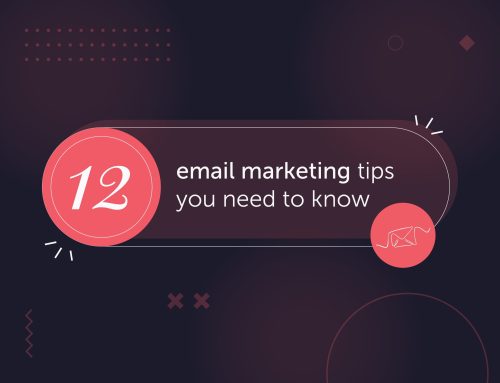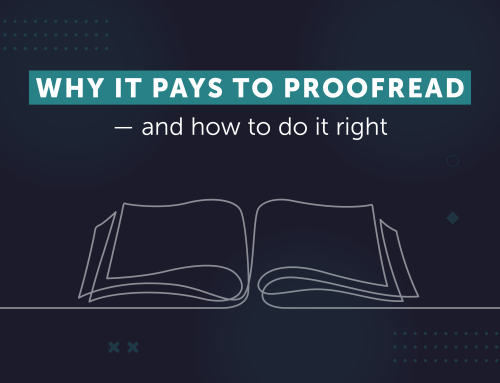
It’s almost that time again…
The clocks have officially gone back for winter, which means the festive season (and the dreaded ‘C’ word) will be upon us before we know it.
And it’s not only Christmas (sorry, we said it) we need to start thinking about; it’ll be New Year quicker than you can take your tree down, and then Valentine’s Day and Easter will roll around in no time.
In the marketing world, these official and unofficial holidays always seem to bring on feelings of impending doom, with teams scrambling to create eye-catching campaigns that’ll stand out against all the noise. But with the proper preparation, these annual events needn’t be cause for panic…
You don’t have to be John Lewis to create a killer Christmas ad. You also don’t need to jump on every seasonal bandwagon that passes by. Nonetheless, if you want to capitalise on peak periods throughout the year, you do need to know how to build an effective seasonal marketing strategy.
So, where to begin?
Understanding seasonal marketing
Seasonal marketing strategies are centred around relevant themes throughout the year, harnessing the momentum and increased traffic surrounding significant calendar events to promote products or services.
In the UK, these events tend to include:
- New Year’s Eve/New Year’s Day.
- Valentine’s Day.
- Black Friday/Cyber Monday.
- Christmas Eve/Christmas Day.
Depending on your industry, several other celebrations might be worth having on your radar, such as Chinese New Year, St Patrick’s Day, Ramadan and more.
Whatever sector you work in, understanding how these seasonal events impact customer behaviour and tailoring your strategy around these findings can boost engagement, brand awareness and sales — but only when it’s done right.
That means getting your ducks in a row as soon as possible to give yourself enough time to create the necessary content ahead of time.
Fortunately, it’s never too early to start planning when it comes to seasonal marketing. So, what are some of the main things you’ll need to remember when working on these kinds of projects?
Choose your moments wisely
First and foremost, it’s important to realise that most businesses don’t need a full-blown campaign for every calendar moment. Honestly, that would be overkill.
These projects require an enormous amount of time and effort, so you want to ensure they’ll pay off — and bombarding your audience with generic marketing collateral every public holiday will likely be exhausting for both them and you, causing your campaigns to fall flat.
Instead, selecting the events that are most relevant to your business or that could tie in seamlessly with your existing marketing strategy is the way to go.
For instance, if you work in cyber security, creating a whole campaign around Valentine’s Day or Easter might be a stretch. However, it would be appropriate to share a series of cyber security tips for avoiding online shopping scams and hacking attempts in the run-up to Christmas, which is a hectic time for IT professionals.
That doesn’t mean you can’t acknowledge these other occasions; you can always share social media posts, blogs, emails and other content to show you’ve got your finger on the pulse.
Still, by being more selective about the ideas you pursue, you’ll avoid spreading your resources too thinly.
Revisit your successful campaigns
Have you ever struggled to think of seasonal campaign concepts that don’t feel forced and predictable? You’re not alone; many small businesses struggle to stand out in the sea of content that comes out during significant calendar moments.
Rest assured: you don’t need to reinvent the wheel to create something impactful. In fact, the best ideas often come from looking back at what’s worked for you in the past — and determining how you can do it bigger and better.
Equally, if your previous efforts haven’t paid off, work out why — and try to do something differently this time around.
Do you need to dive deeper into demographics research to work out how to reach your target audience at peak times? Are your customers likely to relate to a St Patrick’s Day campaign, or are you just trying to shoehorn the theme into your marketing because you feel like you should?
If the latter is true, you risk confusing your messaging and appearing inauthentic, which can be pretty damaging for your brand.
As a result, it’s crucial to pool ideas from everyone in your team to design a strategy that feels fresh and relevant but still aligns with your business’ broader targets and marketing plans.
Stay one step ahead
There’s a reason why some big companies will have been planning their Christmas marketing campaigns since the new year — though this is typically a little unrealistic for SMEs.
These activities might feel spur-of-the-moment to audiences, but any marketing professional will tell you they require a lot of organisation and strategy.
Considering timing is crucial. For example, if you’re holding a Black Friday sale, your promotional activity should peak in November, when most people will receive their last pay cheque. Alternatively, if you’re hoping to generate more leads in the new year, you need to be prepared with a forward-thinking strategy for targeting prospective clients in the post-Christmas lull.
Put it this way: if your customers are thinking about Halloween, you should be thinking about Christmas. If your customers are thinking about Christmas, you should be thinking about Easter — or whatever the next big date is for your business.
By being proactive and thinking ahead, you’ll find that planning seasonal campaigns goes much more smoothly — giving you the time to think big and pull off more ambitious projects.
What’s more, following these steps will help remove the stress of the inevitable ‘oh no, it’s Christmas next month, what do we do?’ panic and allow you to start seeing these events for what they are: exciting opportunities to grow your business.
Need a little helping hand with your seasonal marketing strategy? We’re all over it. Just give us a call at 01252 717373 or email hi@hypedmarketing.co.uk to chat with our team and learn how we can help!










